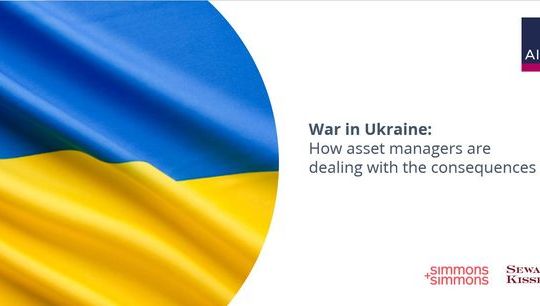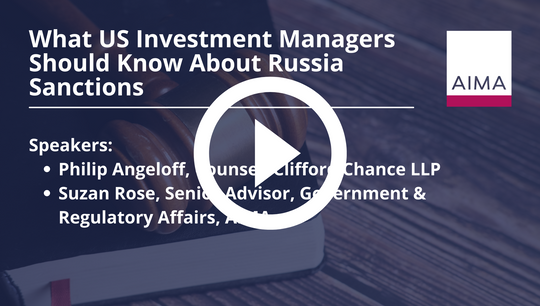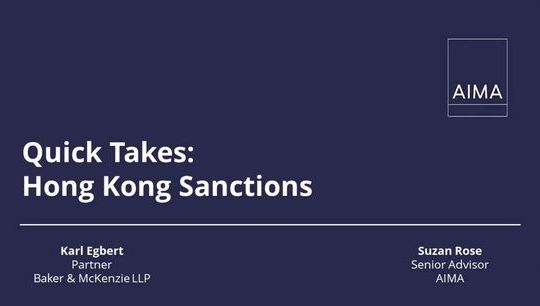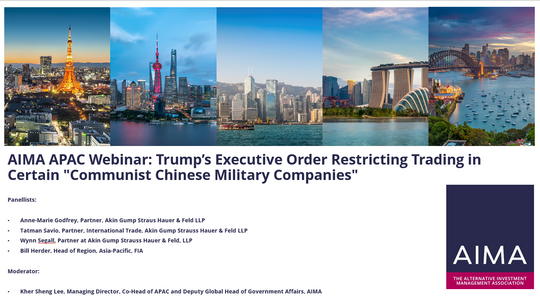Sanctions
Overview:
Financial institutions act as a front-line defence against laundering the proceeds of crime and it is a regulatory requirement for them to combat money laundering and terrorist financing and to comply with the relevant sanctions regimes within the countries in which they operate. Firms will need to ensure that they are not doing business that is connected to individuals, entities or countries subject to sanctions, through a programme of detection and avoidance. Sanctions have historically not been an area of member focus but considering recent developments, this may be an area that members may wish AIMA to be more active in.
















